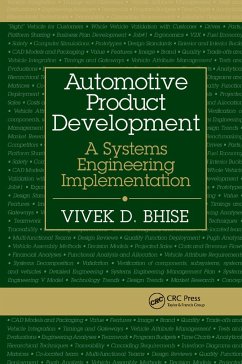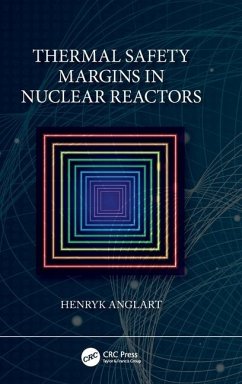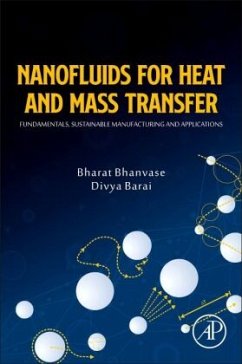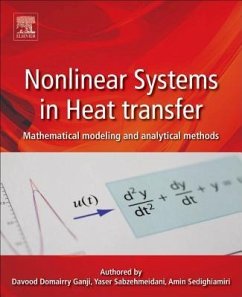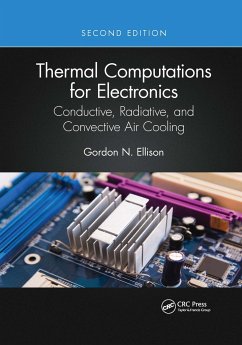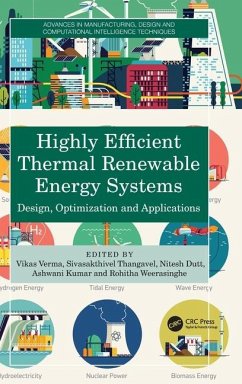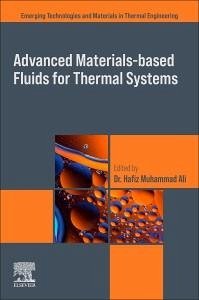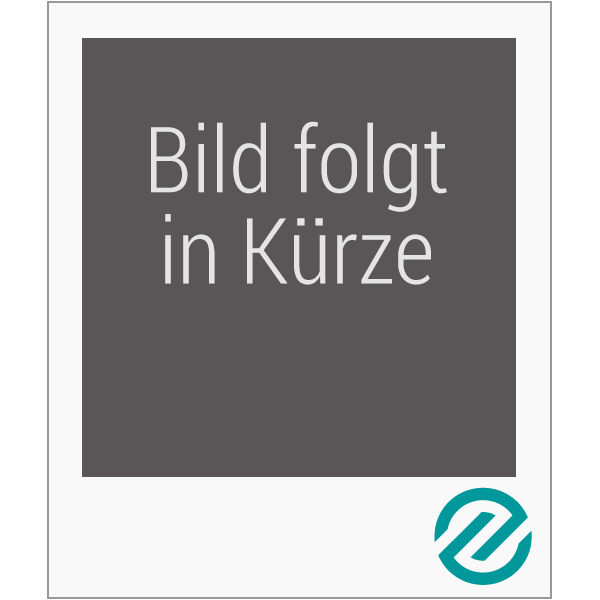
Nanofluids Technology for Thermal Sciences and Engineering
Research, Development, and Applications
Herausgegeben: Awasthi, Mukesh Kumar; Dutt, Nitesh; Kumar, Ashwani
Versandkostenfrei!
Versandfertig in 6-10 Tagen
176,99 €
inkl. MwSt.
Weitere Ausgaben:

PAYBACK Punkte
88 °P sammeln!
This text highlights how nanofluids can be used in thermal solutions across multiple industries, including electronics, energy, and manufacturing. It emphasizes the enhanced heat transfer properties of nanofluids and their potential to significantly improve the efficiency of heat exchange processes. This book discusses topics such as nanoparticle synthesis, nanofluid testing, performance enhancement using nanofluids, thermal behavior of hybrid nanofluids, Brinkman equation in nanofluids and safety considerations in nano fluid based systems.This book:Discusses the recent innovation, technologic...
This text highlights how nanofluids can be used in thermal solutions across multiple industries, including electronics, energy, and manufacturing. It emphasizes the enhanced heat transfer properties of nanofluids and their potential to significantly improve the efficiency of heat exchange processes. This book discusses topics such as nanoparticle synthesis, nanofluid testing, performance enhancement using nanofluids, thermal behavior of hybrid nanofluids, Brinkman equation in nanofluids and safety considerations in nano fluid based systems.
This book:
Discusses the recent innovation, technological development of nanofluids and explores nanoparticle synthesis and characterization for nanofluid developmentOffers a comprehensive understanding of nanofluid technology and nanofluid for aerospace application, covering diverse topics from fundamental properties to advanced research frontiers in nanofluids for thermal engineeringIncludes real world case studies and practical techniques that will help the readers to apply nanofluid technology in various thermal engineering scenariosCovers heat exchanger performance improvement with nanofluids, hybrid nanofluids, Flow of Newtonian and Non Newtonian hybrid Nanofluid, and oil based Tri hybrid NanofluidExplains experimental techniques for nanofluid testing and validation and presents safety and environmental considerations in nanofluid based systems
It is primarily written for senior undergraduates, graduate students, and academic researchers in the fields of manufacturing engineering, industrial engineering, production engineering, mechanical engineering, automotive engineering, and aerospace engineering.
This book:
Discusses the recent innovation, technological development of nanofluids and explores nanoparticle synthesis and characterization for nanofluid developmentOffers a comprehensive understanding of nanofluid technology and nanofluid for aerospace application, covering diverse topics from fundamental properties to advanced research frontiers in nanofluids for thermal engineeringIncludes real world case studies and practical techniques that will help the readers to apply nanofluid technology in various thermal engineering scenariosCovers heat exchanger performance improvement with nanofluids, hybrid nanofluids, Flow of Newtonian and Non Newtonian hybrid Nanofluid, and oil based Tri hybrid NanofluidExplains experimental techniques for nanofluid testing and validation and presents safety and environmental considerations in nanofluid based systems
It is primarily written for senior undergraduates, graduate students, and academic researchers in the fields of manufacturing engineering, industrial engineering, production engineering, mechanical engineering, automotive engineering, and aerospace engineering.






